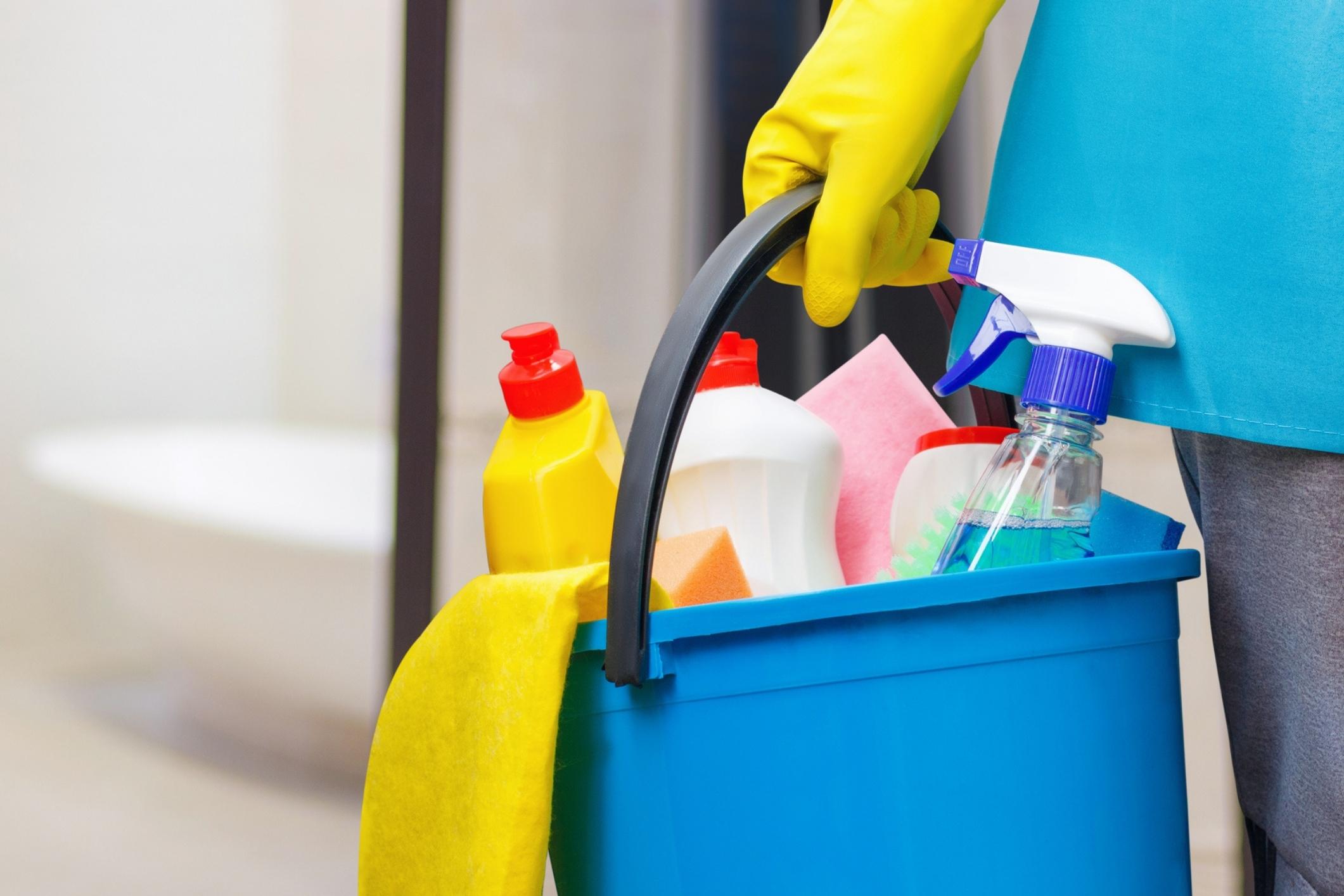Injuries and illnesses Caused by Household Cleaners
Click on the link below to connect with our legal team for a free consultation, we’ll respond within 1 hour during business hours. Or call us 24/7 at (757) 244-7000.












Household cleaners are used in most homes in the United States. Although cleaning agents are trusted to remove stains and spills how much do we really know about them? Injuries and illnesses caused by household cleaners seldom make headlines, but many of these products are linked to serious health conditions.
The lack of transparency over the products in cleaners and what impact they may have on the environment and human health has sparked lawsuits against the manufacturers.
Virginia Dangerous Products Lawyers
In some cases, people who regularly used household cleaners suffered irreversible damage to their health. When a manufacturer fails to label its ingredients properly, the person who became ill may have grounds to file a product liability lawsuit.
Some of the more serious side effects of household cleaners as well as garden products like Roundup have only become apparent in recent years.
Household Cleaners Can be as Detrimental as Smoking
A study in 2018 from the University of Bergen in Norway found regularly using household cleaning sprays can be as damaging to your health as smoking a packet of cigarettes a day.
The researchers from Norway tracked 6,000 people in their 30s who used cleaning products over a period of two decades, according to research published in the American Thoracic Society’s American Journal of Respiratory and Critical Care Medicine.
The study found a marked decline in lung function in women who regularly used household cleaning products. The lung function of women who worked as cleaners was equivalent over the 20-year period to people with a 20-cigarette daily smoking habit.
Researchers said while more is becoming known about the link between household cleaners and asthma, there’s a lack of knowledge about the long-term impact of cleaning products on human health.
Generally, the products seemed to affect the lung capacity of women who participated in the study more than men although the majority of those who took part were women.
The study followed research by French scientists in 2017. Researchers suggested nurses who used disinfectants to clean surfaces at least once a week were 24-32 percent more likely to develop lung disease.
That research suggested even non-intensive use of household cleaners may cause cancer.
Do Cleaning Products Cause Breast Cancer?
A study carried out in the United States eight years ago, pointed to a possible link between cleaning products and breast cancer.
The research found household cleaning products containing carcinogenic substances like methylene chloride may cause breast cancer.
Researchers interviewed almost 800 women from Massachusetts who were diagnosed with breast cancer from 1988 to 1995. They compared them with 721 control subjects. The research published in 2010 by the online journal Environmental Health, suggested cleaning products contribute to an increased risk of breast cancer.
Dangerous Chemicals in Household Cleaning Products
Cleaning products contain a wide range of toxins that are harmful to human health including:
Triclosan
Triclosan is an aggressive antibacterial agent that can lead to the growth of drug-resistant bacteria. A number of studies found dangerous concentrations of triclosan in waterways where it is toxic to algae. The Environmental Protection Agency has investigated whether triclosan may also disrupt the human endocrine (hormonal) function. Triclosan is also in toothpaste and is linked to increased rates of colitis and colon cancer.
Phthalates
Products heavy on fragrance like dish soap and air fresheners may contain phthalates, but manufacturers are unlikely to list them on the label. Phthalates are known disruptors of the endocrine system. They are linked to reduced sperm counts in men.
Perchloroethylene (PERC)
Perc is found in dry-cleaning solutions and carpet and upholstery cleaners. It is a neurotoxin and a possible carcinogen, according to the New York Attorney General’s Office. California plans to phase it out. People who live in buildings close to dry cleaners have reported symptoms like dizziness and loss of concentration, possibly linked to percs.
Butoxyethanol
Butoxyethanol is the key ingredient in many window cleaners and gives them their characteristic sweet smell. This powerful solvent is linked to a host of serious conditions including narcosis, severe liver and kidney damage, and pulmonary edema.
Quaternary Ammonium Compounds (Quats)
Quats are found in fabric softeners. They are a type of antimicrobial. They can breed antibiotic-resistant bacteria. They are also a known skin irritant.
Chlorine
Chlorine is used in a wide range of cleaning products including toilet bowl cleaners, laundry whiteners, and scouring powders. Chlorine is chronic irritant and has been linked to a range of health problems including thyroid issues.
Lawsuits Pressure Manufacturers to Reveal Ingredients
A lack of information about the active ingredients in cleaning products sparked a recent lawsuit in New York as activists from the American Lung Association and the Sierra Club sought to force manufacturers to reveal what makes up household products like Tide and Ajax.
In 2017, New York State announced the launch of a new initiative to require all makers of household cleaning products sold in the state to disclose chemical ingredients on their websites.
New York became the first state in the country to require manufacturers to disclose the active ingredients in their household cleaning products. Such policies can allow consumers to find out if chemicals with negative health impacts for humans and the environment are present in cleaning products.
Contact a Virginia Product Liability Lawyer
The Smith Law Center has been helping clients since 1949. The firm has won many multi-million dollar lawsuits. Our Hampton-based lawyers take on some of the most difficult cases in the Commonwealth and elsewhere. Please contact us for a consultation.
FAQs
Product Liability Verdicts & Settlements
Trial for Woman with Brain Injury Settles Two Days Into Trial
Awarded:
Summary:
South Carolina Resort Award of $1,750,000.00 In Collapse of Rental Bicycle; Largest in State History for Mild Traumatic Brain Injury
Awarded:
Summary:












